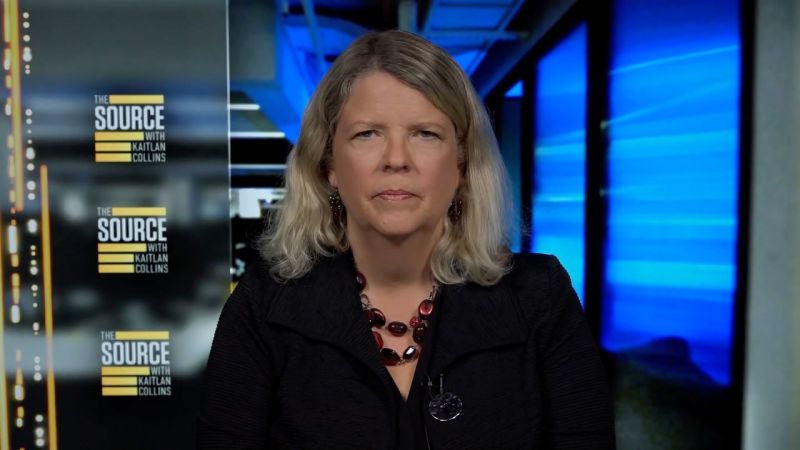In recent developments surrounding national security and intelligence in the United States, a heated exchange has emerged between key figures about the legitimacy and implications of a 2017 intelligence report that assessed Russian interference in the 2016 presidential election. This report has resurfaced as a point of contention as different political personas weigh in on its impact and accuracy. Central to the story are retired CIA official Susan Miller and former Democratic presidential candidate Tulsi Gabbard, each offering contrasting views on the origins and credibility of intelligence operations during that pivotal time.
Susan Miller, a retired CIA officer and a pivotal contributor to the aforementioned intelligence report, has publicly vowed to contest any criminal charges that may emerge from the Trump administration in relation to her work. In an interview with CNN’s Kaitlan Collins, Miller expressed her determination to fight any legal repercussions, stating, “But I’ll do it. I’ll fight, I’ll fight to the end.” In light of potential accusations, Miller revealed that her team has already discussed their legal strategies. This announcement highlights the friction still felt within the realm of American intelligence post-2016.
Contrastingly, Tulsi Gabbard, serving as the Director of National Intelligence, has pointed fingers at the Obama administration, suggesting it had orchestrated the intelligence report to serve political ends. Gabbard, who has openly made criminal referrals to the Justice Department regarding the matter, claims that the report fabricates the narrative of Russian involvement intended to bolster Donald Trump during the election. “My team and I … talked about what lawyers we’d be looking for,” Miller explained, implicitly defending the integrity of her team’s findings against Gabbard’s allegations.
Miller staunchly refutes any notions that the report’s conclusions were coerced by then-President Barack Obama or former CIA Director John Brennan, noting, “Absolutely not.” She indicated that her team would have resigned had they ever faced undue pressure. This stark defense of their processes and independence underlines the commitment of intelligence communities to uphold their integrity, regardless of political affiliations or outcomes.
In her defense of the intelligence report, Miller emphasized that the findings were “extremely sound and verified,” implying that they were based on a thorough and impartial collection of evidence. Notably, she mentioned that the report’s conclusions were not derived from the controversial Steele dossier, which has often been criticized due to its questionable credibility. This dossier, attributed to former British intelligence officer Christopher Steele and financed by Hillary Clinton’s campaign, has been a fulcrum for contention, especially regarding its claims of collusion between the Trump campaign and Russian operatives.
Despite Miller’s conclusions affirming that Russia did attempt to influence the 2016 election, she clarified that no definitive connection could be drawn as to whether this interference had a successful outcome. “Unless we poll every voter as to why they voted, we can’t tell you if that worked,” she stated, reinforcing her team’s professional stance that, while Russian interference is documented, determining its effectiveness remains elusive.
In response to Gabbard’s attacks and the commentary from the current White House, which labeled the intelligence report a “hoax,” Miller expressed dismay. She argued that the contemporary political climate engendered a dangerous precedent where analysts might feel compelled to produce favorable reports, stating, “What analyst wants to put his or her, their name on any paper now?” This chilling effect on intelligence reporting could undermine the credibility of future findings, which is a significant concern for national security.
In summary, the ongoing discourse around the 2017 intelligence report demonstrates the acute polarization within American political dialogue, particularly surrounding issues of national security and foreign interference. Figures like Susan Miller and Tulsi Gabbard invoke the complexities of truth, accountability, and the political influence on intelligence, raising crucial questions about how these dynamics will shape the future of U.S. governance and international relations. As this saga continues, the outcomes could hold significant ramifications for both American political integrity and the validity of its intelligence operations.











